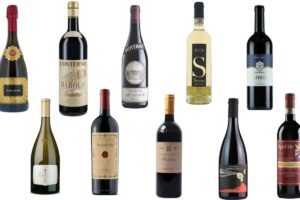1. Wine has always been a part of human society.
2. Wine is increasingly appreciated by a number of countries and different cultural environments.
3. Wine is part of the Mediterranean diet.
This is the beginning of the “Consensus Statement”, the document drawn up during the International Scientific Workshop “The truth about wine - la verità sul vino”.
The National Observatory promoted the symposium on the theme of conscious consumption of wine, which was discussed in depth by experts and eminent International academics. The symposium was held at the Piedmont Region Wine Cellar in the Grinzane Cavour Castle, to review progress on the “state of the art” awareness and to set guidelines and strategic objectives for the future on wine research, prevention and health protection. The final document includes 10 points:
4. Wine is a natural product produced by fermenting crushed grapes and its components include many bioactive compounds, including polyphenols such as resveratrol, anthocyanins and tannins.
5. These substances contribute to the sensory quality and to the taste, making each wine unique and an ideal complement to food.
Regarding health, the document continues:
6. In recent decades scientific research has shown that moderate wine consumption is associated with significant benefits for health, promoting longevity and reducing the risk of many diseases linked to aging. These diseases include coronary heart disease, stroke, dementia and diabetes
7. The mechanisms responsible for these health benefits include antioxidant and anti-inflammatory activity of a large number of bioactive compounds, as well as the beneficial effect on platelet aggregation and composition of lipids in the blood.
8. The alcohol derived from fermentation of the grapes, along with these bioactive compounds has a favorable effect on health when wine is consumed in moderate amounts, but it has adverse effects when consumed in excess or inappropriately.
In terms of research and education programs, finally, the document states that:
9. Government agencies and private institutions should: (a) support research on the effects of moderate wine consumption on health; (b) promote educational programs to control consumption of wine.
10. Educational programs are designed to prevent alcohol abuse, particularly among young people, and will include information on (a) the existence of individual variability in tolerance to alcohol, (b) the risks of misuse of alcohol consumption including compulsive drinking, (c) the increased risk of traffic accidents when speed limits are not obeyed.
Part of the document is also dedicated to the interaction between the genetics of the vine and the environment. The sequencing of the grapevine genome has allowed the accumulation of information, which is now able to target the main problems of modern vine cultivation, such as reducing pesticide use and improving the quality of wines. The concept of wine quality has changed over time, thanks to a broader knowledge about wine and understanding the chemical compounds responsible for flavors and health features.
According to the document, further improvements in quality can be achieved by using the wealth of grape varieties that exist in nature because the genome provides the information to understand the mechanisms of synthesis of compounds responsible for flavor and the healthy effects of wine.
For example, low environmental impact viticulture requires the use of grape varieties that have a natural resistance to major diseases of the vine. The document states, “the concept of terroir, linked to the history, tradition and culture of the area, must be preserved and enhanced, including the application of genetics for the improvement of viticulture. Man has inherited genes for metabolizing ethanol probably present in fermented vegetables that were part of his diet. There is a need to broaden the knowledge on genetic control of human variability in the perception of the taste of foods and beverages, just as wine components interact among themselves and with medicines”.
Copyright © 2000/2026
Contatti: info@winenews.it
Seguici anche su Twitter: @WineNewsIt
Seguici anche su Facebook: @winenewsit
Questo articolo è tratto dall'archivio di WineNews - Tutti i diritti riservati - Copyright © 2000/2026






































































































































































































